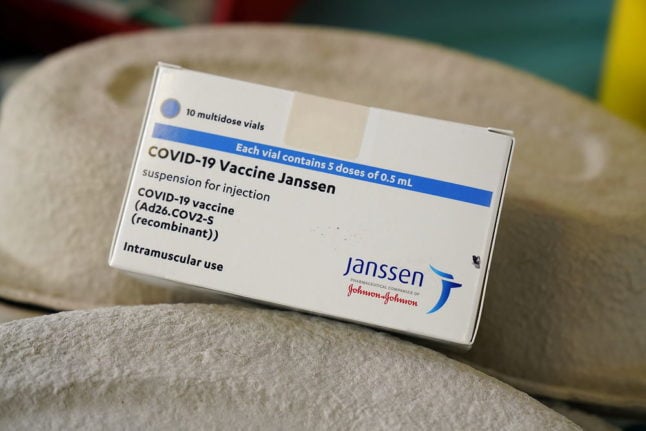A decision by the authority on whether it will also withdraw the Johnson & Johnson vaccine from the national Covid-19 programme, as it did with the vaccine from AstraZeneca, was scheduled to be made this week, but has been put back.
“We will hopefully hear next week from health authorities about the Johnson & Johnson vaccine,” health minister Magnus Heunicke said according to broadcaster DR.
“That also means that a vaccination calendar can be set, which we can use to see exactly how quickly and how” remaining coronavirus restrictions can be lifted, Heunicke added.
The J&J vaccine is yet to be used in Denmark after the company earlier this month announced it would delay the rollout of its vaccine in Europe due to concerns over rare potential side effects detected in the United States.
The European Medicines Agency (EMA) last week said it had concluded, based on initial investigations, a possible link between the J&J vaccine and rare cases of blood clots combined with low platelet levels.
The regulator recommended adding a warning to the vaccine’s product label and said the benefits of the one-dose shot outweigh its risks.
READ ALSO: European countries face slower vaccination as Johnson & Johnson delays rollout
The European rollout was recommenced following the EMA’s statement, with Johnson & Johnson agreeing to add a product warning on packaging as recommended by the regulator.
France and Italy are among countries to have begun using the US drug maker’s vaccine, but have limited its use to people over the ages of 55 and 60 respectively.
The United States has also reintroduced the vaccine to its inoculation programme after US authorities recommended lifting a pause on the jab, following a safety review.
The leader of the Danish Conservative party, Søren Pape Poulsen, said on Thursday he would accept a J&J vaccine regardless of the final decision by the country’s health authority.
“If the authorities don’t approve it, I’ll glad offer my arm and take it. When the Americans, the Danish Medicines Agency and the EMA have approved it, I find it hard to understand why we can’t approve it (for use),” Poulsen told DR.
“If a vaccine approved everywhere else can’t be (used) in Denmark, I need to take a breath,” he added.



 Please whitelist us to continue reading.
Please whitelist us to continue reading.
Member comments